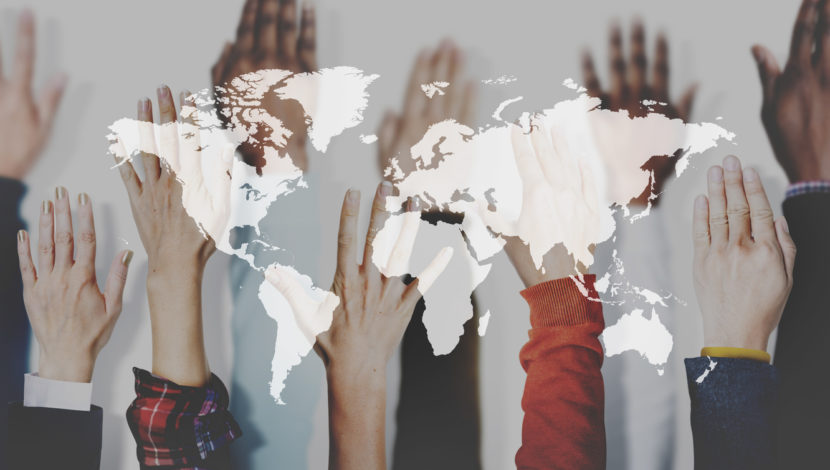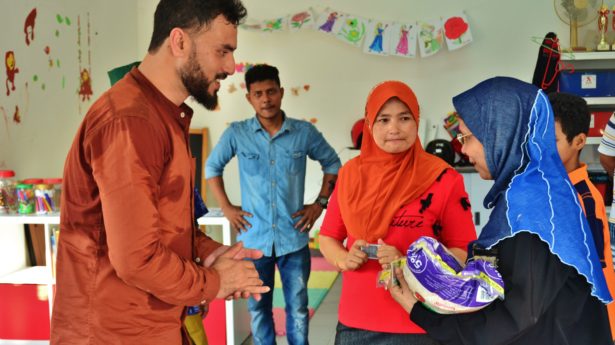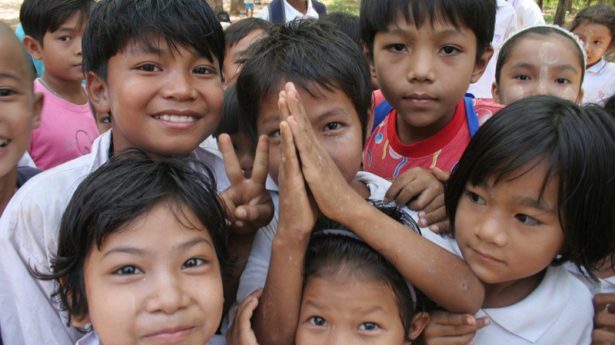The Unitarian Universalist Service Committee advances human rights through grassroots collaborations.
Building a Movement Towards Freer and Fairer Elections in the U.S. and Burma

By UUSC Staff on November 6, 2020
As the United States reels from the results of one of the most divisive and partisan elections in recent memory, we’re reminded that the bedrock of our nation is the principle of having a voice in how we’re governed. Free and fair elections are the exemplars of successful participatory democracies, but if there’s anything we can learn as supporters of progressive movements, it’s that the work and events in the intervening years—the critical time between elections—require just as much, if not more, of our engagement to truly overcome oppression and discrimination.
Given our country’s long history and active practice of voter suppression, most of which has specifically targeted communities of color, the “free and fair” designation has nearly always been a myth. The United States has spent hundreds of millions of dollars over the past decade alone promoting democracy abroad through taxpayer-funded development programs—much of that through direct support for elections and electoral processes in developing countries. Ironically, that support is used as an access point for economic and political leverage in the countries we’re supporting.
Nowhere is this more evident than in Burma (Myanmar), where the past five years have seen an uptick in armed ethnic conflicts across the country as well as the violent mass expulsion of the Rohingya Muslim minority to Bangladesh by the Burmese military. The country is now facing multiple allegations of genocide and other international crimes across various international courts for those crimes committed against the Rohingya by the Burmese government, which is led by Nobel Laureate Aung San Suu Kyi. In the lead up to Burma’s own national elections on November 8, it is critical to note that a designation of “free and fair” is effectively meaningless when the five years leading up to the elections have seen an increase in human rights abuses and injustice.
In “A Vote with No Confidence: Myanmar’s 2020 General Elections and the Rights of Ethnic and Religious Minorities,” UUSC partner Nang Zun Moe, executive director of Progressive Voice, said, “restricting the political space of ethnic people is antithetical to national reconciliation and peace building and will only lead to further conflict.” Another UUSC partner, Tun Khin from the Burmese Rohingya Organisation UK, summed it up clearly in his recent op-ed: “Real democracy will remain elusive in a country that cannot acknowledge its own role in the mass persecution of its own citizens.”
As we reflect on the American electoral process and those of our partners around the world, we must broaden our understanding of democracy to push for elections that are “freer and fairer.” This recognition of “freer and fairer” acknowledges attempts at free and fair elections over time and the struggles inherent in advancing the fundamental principles of a participatory democracy that many authoritarian governments have attempted to suppress.
As in the United States, UUSC is committed to ensuring that nations like Burma are making progress in realizing human rights in their purest form. As we watch the events of November 8 unfold, we will continue to center dignity and the affirmation of our shared humanity in ensuring that each and every one of us has access to a robust and inclusive participatory democracy. In between elections, we are committed to sustaining and building movements that sustain the rights of all.
***
About UUSC: Guided by the belief that all people have inherent worth and dignity, UUSC advances human rights globally by partnering with affected communities who are confronting injustice, mobilizing to challenge oppressive systems, and inspiring and sustaining spiritually grounded activism for justice. We invite you to join us in this journey toward realizing a better future!
Photo Credit: iStock – Rawpixel

